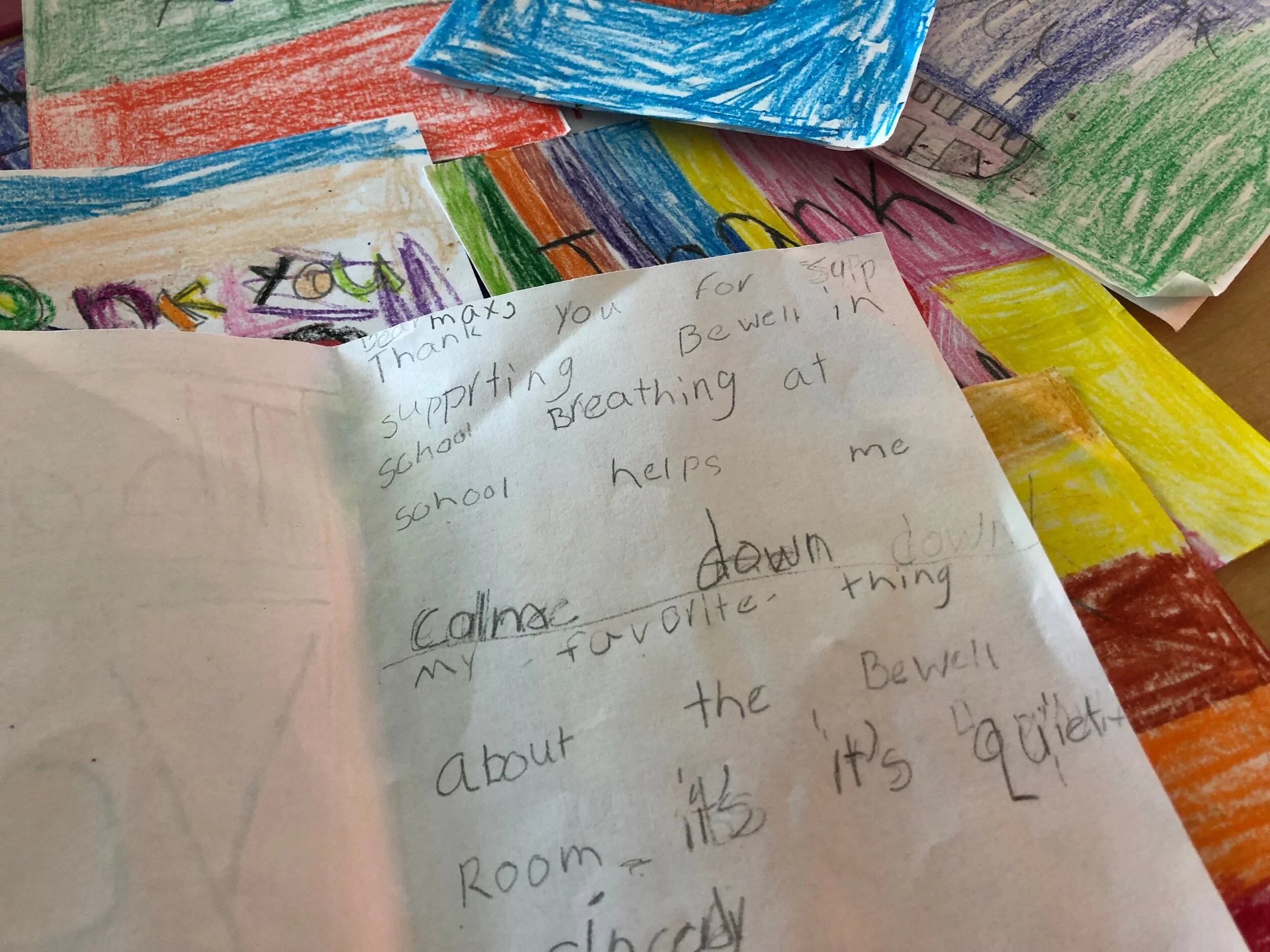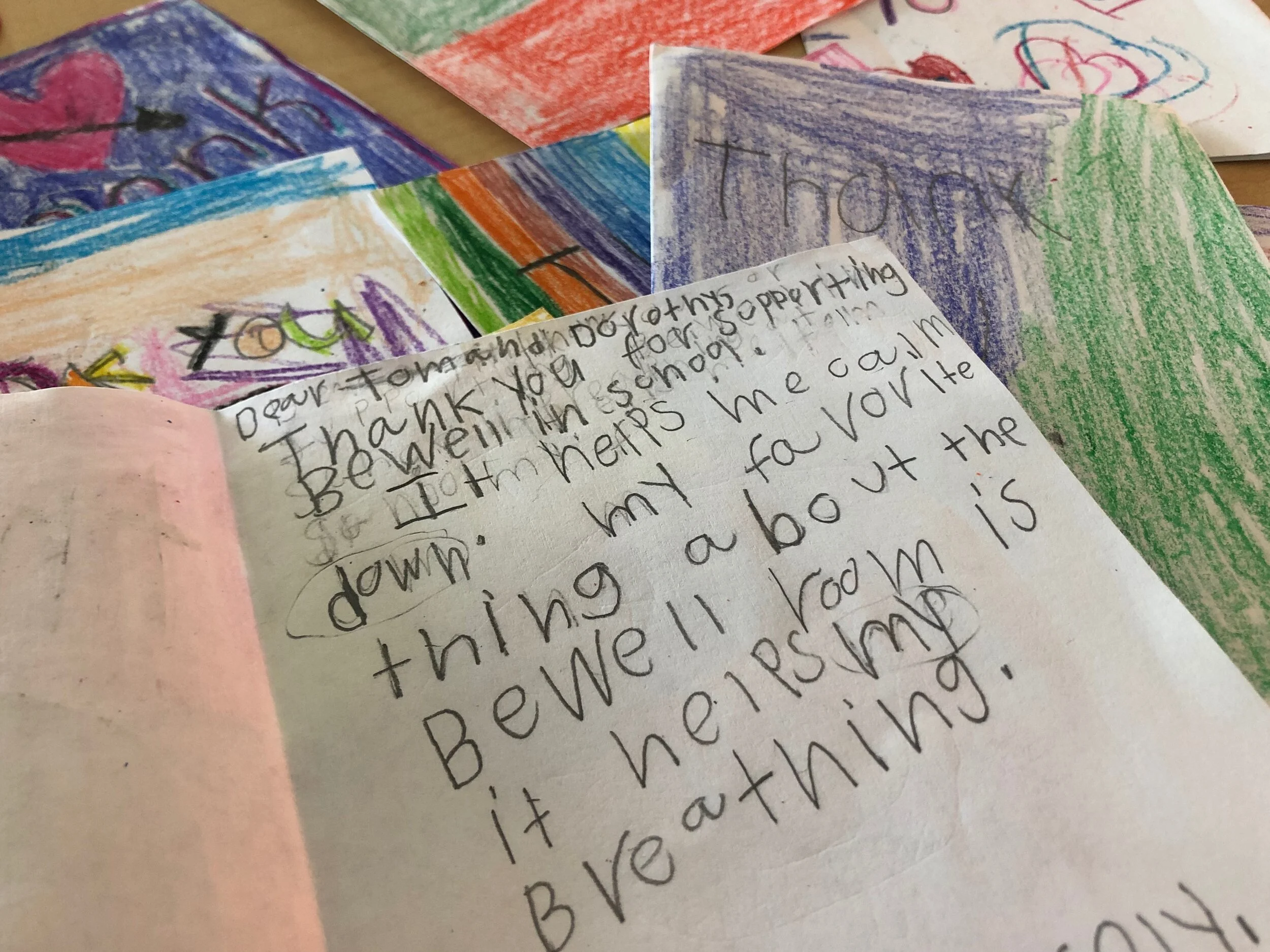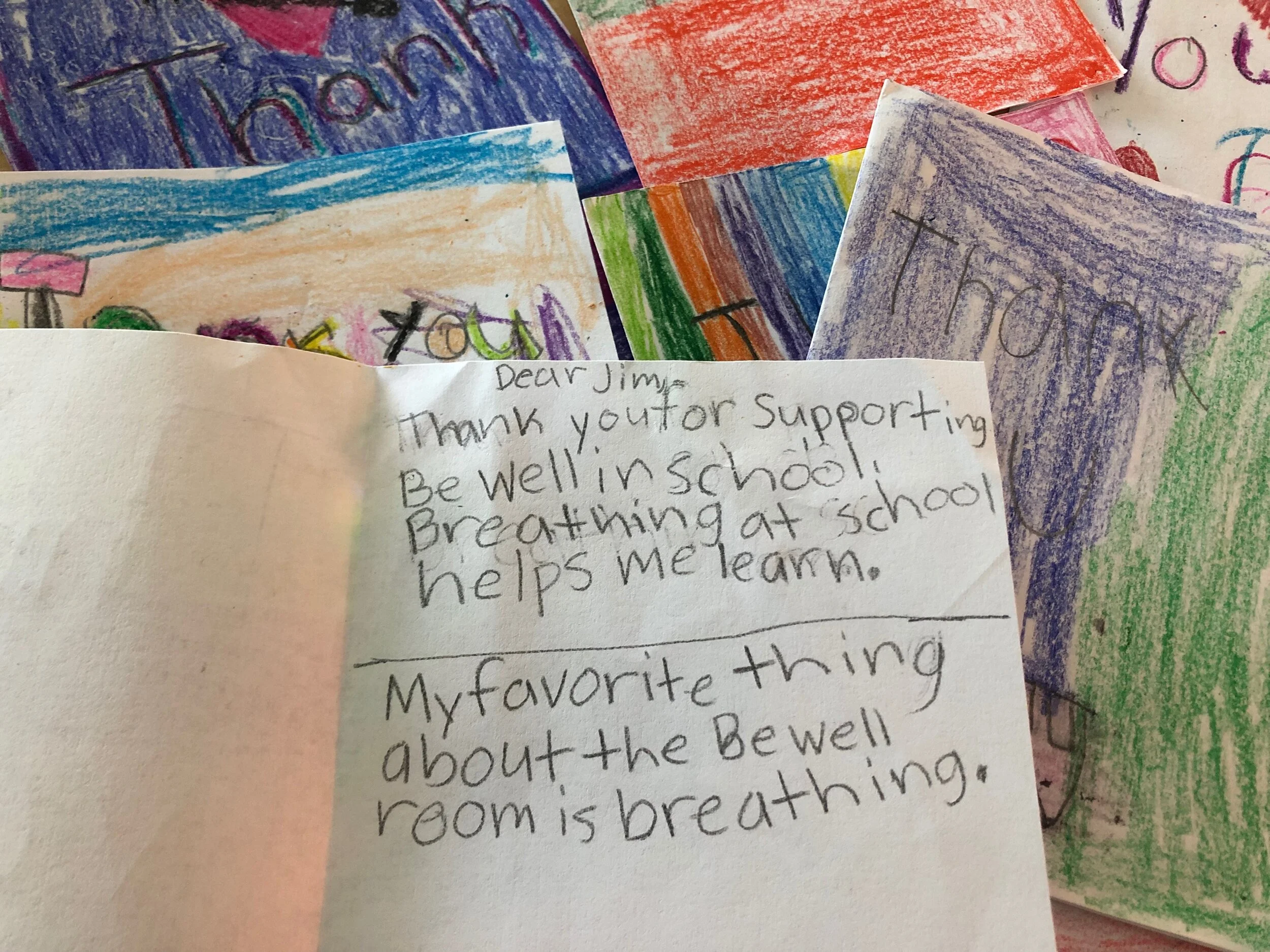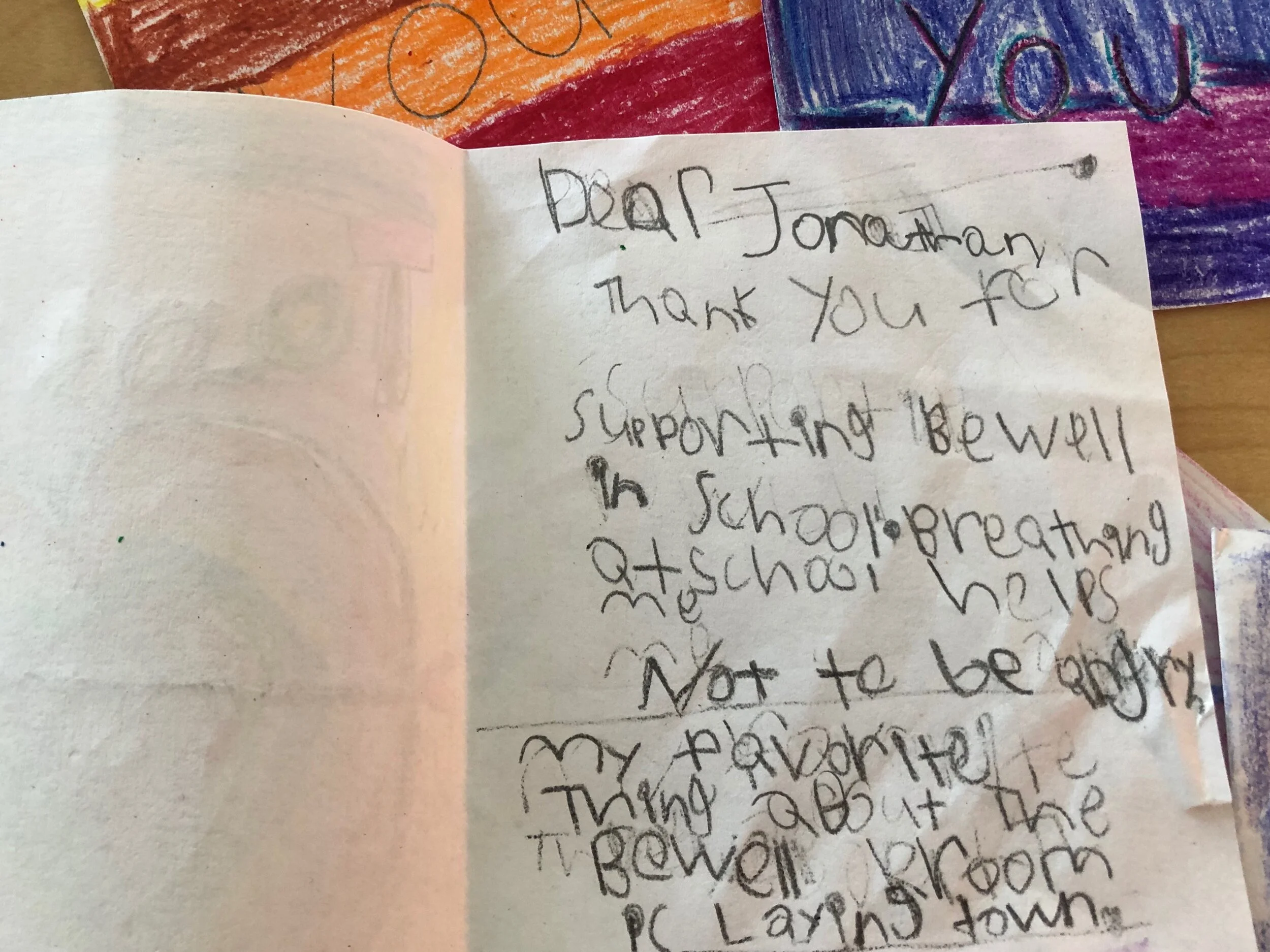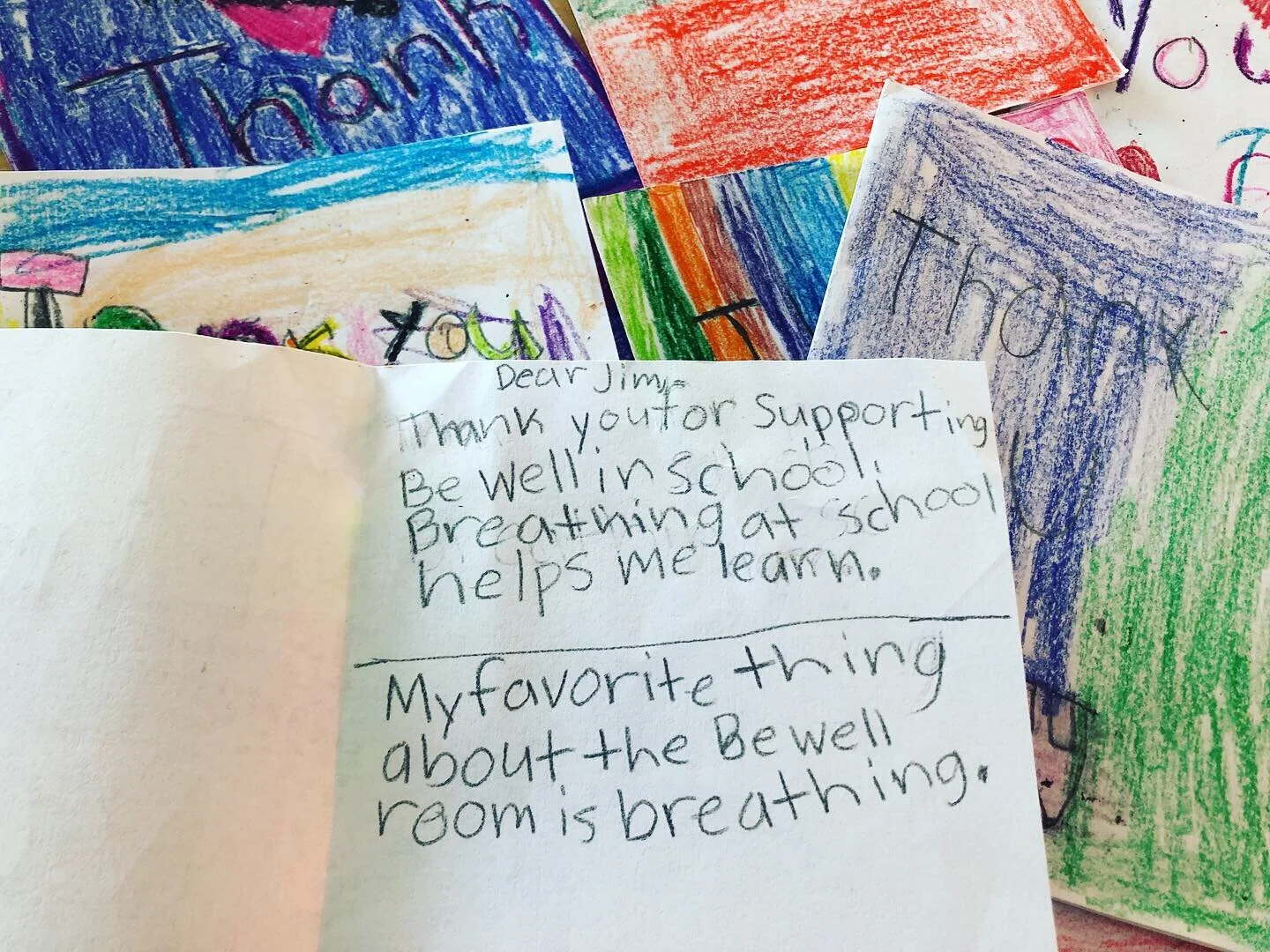Our Mission
BeWell in School teaches mindfulness and movement as a proactive behavior management system. We provide an alternative approach to traditional discipline by teaching effective strategies for self-regulation. Our mission is to provide students with the tools they need to be successful in the classroom, and beyond, by making wellness strategies available to all.
The Why.
We are in the midst of an educational crisis in America. Every day, schools and teachers manage many needs with few resources. Children in all communities are facing adversity, which disrupts their experiences in the classroom. In fact, nationwide more than 46% of youth (34 million children under age 18) have had at least one Adverse Childhood Experience (ACE). More than 20% have had at least two (1). These experiences disrupt development and negatively impact health and education outcomes. When students exhibit non-learning behaviors, they are telling us they are ill-equipped to handle their current situation (2). We must take these opportunities to teach students self-regulation tools so that they can persevere and prosper in all situations they encounter throughout their lives.
Right now, schools lack effective resources to deal with students’ needs. Our current behavior system is broken and failing our students. Detention, suspension, and expulsion do not work. The majority of the time, these strategies overlook the issue and fail to solve the problem. We provide an effective alternative to traditional discipline.
What we do.
We meet students where they are. When students are not ready to be in the classroom during learning, we offer them the space and strategies to de-escalate while also providing them with tools to work through similar challenges in the future. We use intentional spaces to proactively teach and practice movement, breathing and mindfulness strategies that help students navigate stressful situations and reduce disciplinary issues.
We've partnered with Warner Arts Magnet Elementary School in East Nashville, Tennessee for our Pilot Program. Starting in the 2019-2020 school year, we'll spend five years gathering data and refining our curriculum as we follow this year's kindergarten class through to their promotion to fifth grade. We lead Professional Development sessions with teachers and school staff to help strengthen self-care strategies so they are better able to help students manage emotions and self-regulate.
We are always looking for incredible people to help us in our efforts to make wellness strategies more accessible to more people. Make an impact with your time. Volunteer with Be Well and change the day of a child.
Serving Needs
“When students don’t know how to read, we teach them literacy. When students don’t know how to do math, we teach them numeracy. When students don’t know how to act, we send them home? Not anymore.” — Dr. Ricki Gibbs, Principal, Warner Arts Magnet Elementary School
Numbers Talk.
Research indicates that mindfulness improves children's resilience, optimism, self-esteem, social competence and academic achievement while also reducing stress, anxiety and emotional instability. Specifically, an 8-week Mindful-Based Social Emotional Learning program at an elementary school in Chicago decreased incidents of disruptive behavior among third grade students by more than 50 percent (3). Another important study conducted by Harvard Medical School's Mind/Body Institute found that middle school students attending four or more sessions of a relaxation curriculum earned significantly higher GPAs than their peers who never participated (4). A pattern of higher GPAs, associated with more sessions attended, continued for the next two years of the study.
LITERATURE.
(1) Traumatic Experiences Widespread Among U.S. Youth, New Data Shows. (2017). Retrieved from https://www.rwjf.org/en/library/articles-and-news/2017/10/traumatic-experiences-widespread-among-u-s--youth--new-data-show.html
(2) Galvin, G. (2019). CDC: Childhood trauma tied to poor health: Preventing adverse childhood experiences could have averted millions of cases of depression among adults in 2017, along with a multitude of other poor health outcomes. Retrieved from https://www.usnews.com/news/healthiest-communities/articles/2019-11-05/childhood-trauma-tied-to-poor-health-social-outcomes
(3) Bakosh, L. S., Snow, R. M., Tobias, J. M., Houlihan, J. L., & Barbosa-Leiker, C. (2016). Maximizing mindful learning: An innovative mindful awareness intervention improves elementary school students’ quarterly grades. Mindfulness, 7 (1), 1-21.
(4) Benson, H., Wilcher, M., Greenberg, B., Huggins, E., Ennis, M., Zuttermeister, P. C., Myers, P., & Friedman, R. (2000). Academic performance among middle school students after exposure to a relaxation response curriculum. Journal of Research and Development in Education, 33 (3), 156-165.


